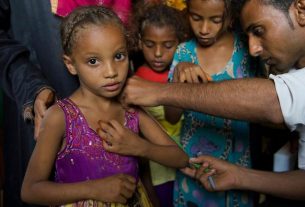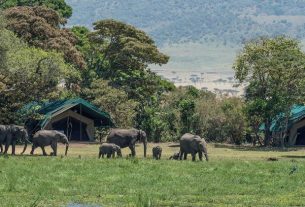Saudi Arabia’s bid to host the 2034 FIFA World Cup has garnered significant attention, with a record-breaking evaluation score of 419.8 out of 500—the highest ever in World Cup bidding history. This milestone highlights the Kingdom’s growing influence in global sports, as it positions itself to host the world’s premier football event. However, alongside its ambitious sports agenda, the bid has sparked conversations about its potential impact on the country’s human rights and press freedom landscape.
Vision 2030: Saudi Arabia’s Ambition to Lead in Global Sports
The bid for the 2034 World Cup is a cornerstone of Saudi Arabia’s Vision 2030, an ambitious initiative spearheaded by Crown Prince Mohammed bin Salman to transform the Kingdom’s economy and global standing. Part of this vision is to establish Saudi Arabia as a leading destination for major international sports events. By securing the World Cup, the Kingdom aims to showcase its rich cultural heritage, advanced infrastructure, and exceptional hospitality, while positioning itself as a hub for tourism and international business.
The proposal for the 2034 World Cup includes 15 modern stadiums spread across five key cities—Riyadh, Jeddah, Khobar, Abha, and NEOM, a futuristic city being developed in the northwestern part of the country. With an expanded 48-team tournament, Saudi Arabia is preparing for a larger and more inclusive event that will bring fans from all over the world to experience the Kingdom’s vision of progress and modernity.
The Role of the World Cup in Human Rights and Press Freedom Reforms
While the bid has been widely praised for its boldness and forward-thinking infrastructure, it also casts a spotlight on Saudi Arabia’s human rights record. The Kingdom has faced persistent criticism from international organizations regarding its treatment of dissidents, restrictions on freedom of expression, and limitations on press freedom. The murder of journalist Jamal Khashoggi and ongoing restrictions on independent journalism have drawn particular attention to Saudi Arabia’s human rights practices.
However, hosting the World Cup could serve as a catalyst for meaningful reforms in these areas. Global events like the World Cup often bring increased international scrutiny, and Saudi Arabia’s bid to host such a prestigious tournament may offer an opportunity to demonstrate a commitment to improving its human rights standing. In the past, major sporting events have been used by host countries to signal political and social change, and Saudi Arabia’s World Cup bid could provide a similar opportunity.
There is hope that the global spotlight associated with the tournament will pressure Saudi authorities to make tangible progress on human rights issues, particularly press freedom. The expectation is that, as part of its broader efforts to improve its international image and secure global partnerships, Saudi Arabia may be encouraged to ease restrictions on journalists, allow greater freedom of expression, and foster a more open media environment. The country’s involvement in global sports governance and increasing relationships with Western nations may further incentivize these changes.
International Scrutiny and the Need for Accountability
As Saudi Arabia moves closer to the FIFA Congress vote in December, where the hosts for the 2030 and 2034 World Cups will be announced, it will face intense scrutiny on multiple fronts. Alongside its sports ambitions, there are growing calls for the country to prioritize human rights reforms. The global community will be watching to see if hosting the World Cup leads to genuine advancements in the protection of civil liberties and media freedoms.
The potential for positive change will depend largely on Saudi Arabia’s willingness to embrace reform in these critical areas. Some experts argue that the World Cup, by drawing global attention to the country, could create the necessary pressure for meaningful change. The event could catalyze legal and political reforms aimed at improving the human rights situation in the Kingdom, particularly as it seeks to present itself as a progressive, modern nation to the world.
A Dual Legacy: Sports and Social Reform
Saudi Arabia’s 2034 World Cup bid is a historic moment, not just for the country’s sports aspirations, but also for its broader political trajectory. If the Kingdom is successful in securing the tournament, it could signal a turning point in its social and political evolution. The intersection of major sports events with political change is not unprecedented, as countries often use such high-profile events to bolster their international image and initiate domestic reforms.
For Saudi Arabia, the World Cup could serve as a transformative event, not only bringing global attention to its sports achievements but also potentially leading to positive reforms in human rights and press freedom. The country’s Vision 2030 plan emphasizes a future of openness and progress, and the World Cup bid could provide the impetus for meaningful steps toward these goals.
Conclusion
Saudi Arabia’s bid for the 2034 FIFA World Cup is a significant moment in the country’s bid to position itself as a leader in global sports. However, the potential for this event to drive positive changes in the Kingdom’s human rights and press freedom practices cannot be overlooked. With increased international scrutiny and pressure, hosting the World Cup could offer Saudi Arabia an opportunity to make important strides in improving its human rights record, marking a dual legacy of both sporting achievement and social reform. The world will be watching as the decision unfolds, and whether the tournament will serve as a stepping stone for a more open and progressive Saudi Arabia.



